Login
Signup
History
- Home - What we do - Projects - Atelier Rafedìn -
- History
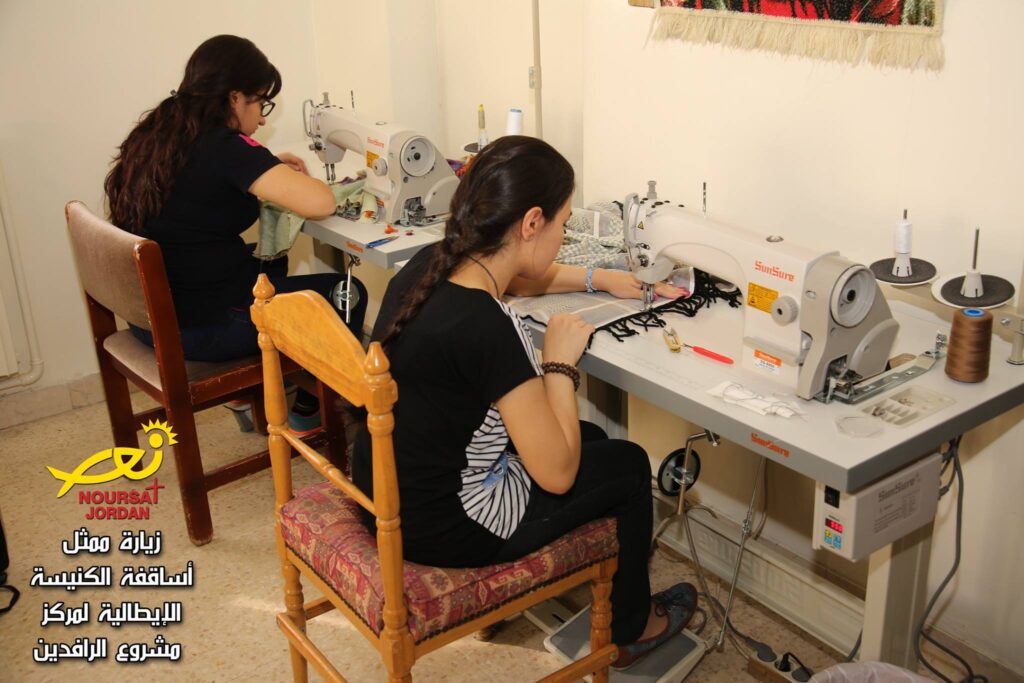
The Rafedìn project was born on Feb. 24 from an idea of Fr. Mario Cornioli and Italian fashion designer Rosaria Mininno: inside the Salesian Sisters' house in Jabal al-Weibdeh in Amman, a large space was available with 3 old Singer treadle machines waiting for someone who could return to sew fabrics and threads of hope.
There were about 20 girls, none of whom had ever held a needle and thread. Yet in the span of a few months they created a collection of clothes presented for the first time in Italy in Cerignola (FG) with a fashion show.
Immediately the project attracts the attention of the press and TV.
In June, Noursat Jordan, Jordanian Christian TV, visited the workshop and filmed a video interview that was aired throughout the Middle East.
A luglio, l'ambasciata irachena ad Amman ospita una minisfilata delle ragazze.
In October, the project received a visit from H.E. Card Sandri, prefect of the Vatican's Congregation for the Oriental Churches, and Msgr. Nunzio Galantino, then secretary of the Italian Bishops' Conference
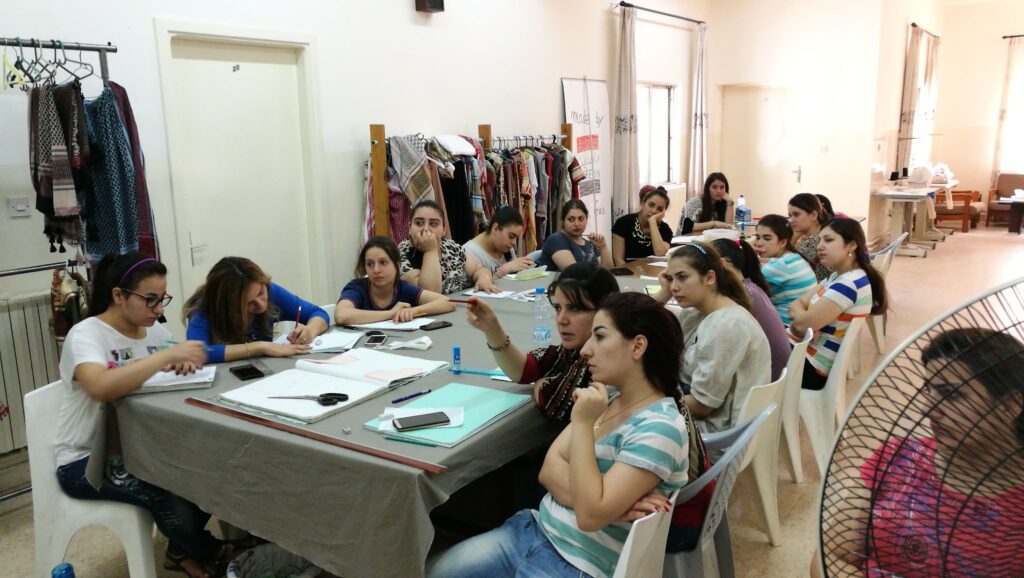
Rafedìn continues its activities in a new location, at the Custody of the Holy Land facility in Jabal Webdeh, thanks in part to the support of the many friends who visit the workshop.
The girls continue to learn not only sewing (a Jordanian seamstress joins the team), but also English.
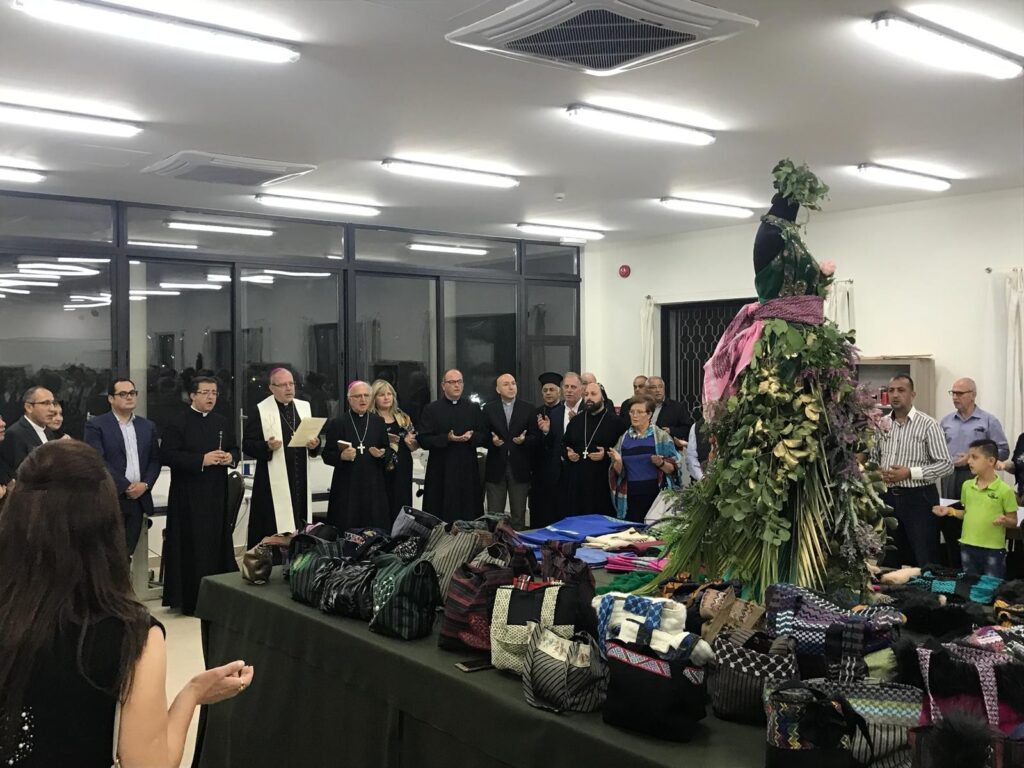
Alcune ragazze iniziano a partire, altre arrivano, ma Rafedìn continua la sua missione di accoglienza e di formazione.
Also joining the team is fashion designer Antonella Mazzoni, who will provide her many years of experience in the fashion field.
The girls, beneficiaries of the project, parade wearing the garments they created in a fashion show at Mar Yousef attended by many people from the local and international community, religious and non-religious authorities.
TV2000 shoots "Made by Iraqi girls, a documentary that carefully and delicately recounts the drama experienced by girls from Rafedìn who, driven from their land, must reinvent their lives in Jordan while waiting to leave for Australia, Canada and the United States.
The workshop moved again: for a time at the facilities of the Melkite Cathedral in Amman, then finally the dream of having its own workshop came true.
Thanks to the support of CEI (Italian Episcopal Conference) through 8x1000 funds and collaboration with the association ATS Pro Terra Sancta, Rafedīn is inaugurating its workshop at Mar Yousef Parish in Jabal Amman. A beautiful space full of light and life that welcomed a new group of girls for a new training course.
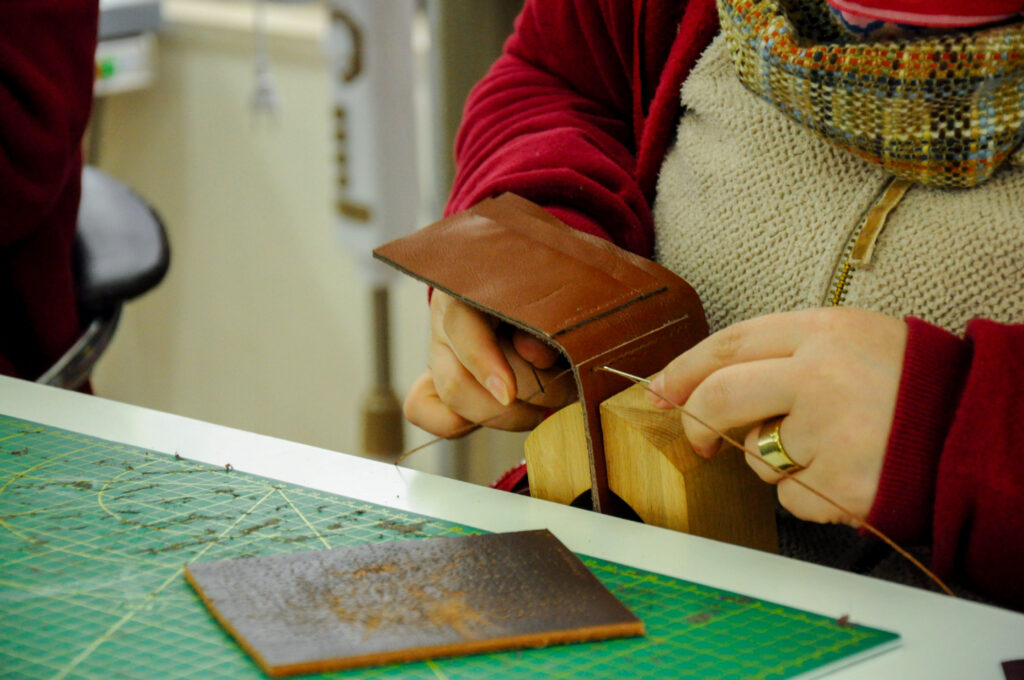
Thanks to the contribution of the CEI (Italian Episcopal Conference) with the Orien-taly project, a new training course on leather processing is kicking off with the purchase of specific machinery for this use. Jordanian trainer Loay Khaled devised the first patterns and passed on his knowledge to an initial group of girls who went on to become trainers in their own right, so now Rafedìn has added leather goods to its textile production.
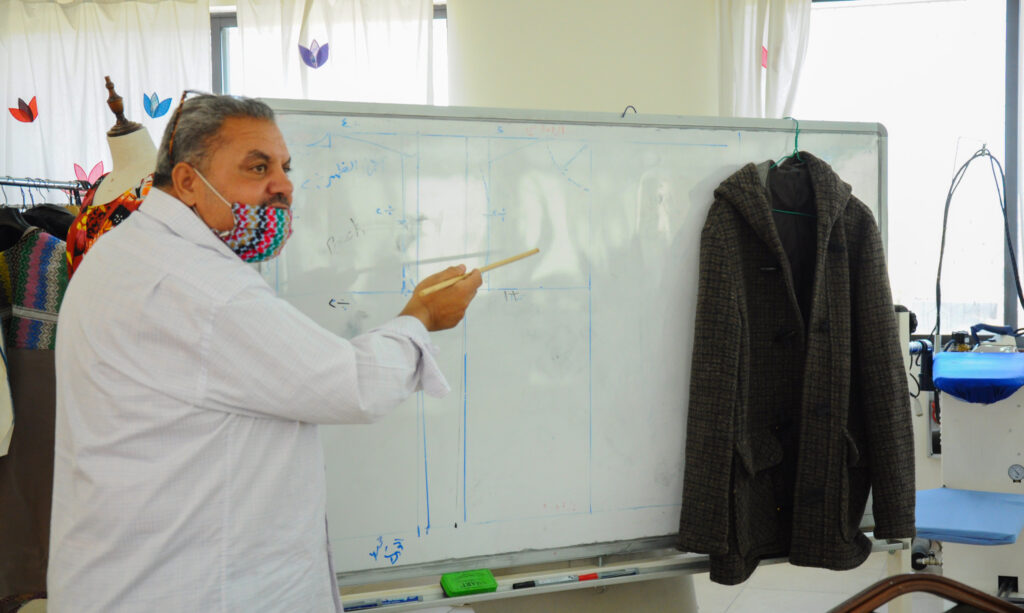
Collaboration begins with the French Embassy in Amman, which decides to support the project. Thanks to their contributions, new sewing machines and fabrics are purchased and Mohsen, a local professional tailor, is hired. Thanks to him, all paper patterns are perfected, and the girls involved in the project, more than 20 of them, gain new skills learning the most complex cutting and sewing techniques.
The arrival of Covid shuts down the laboratory for a few months. Girls proved resilient. Thanks to a grant from UNICEF Jordan, some of them receive sewing machines with the aim of making anti-covid masks from home to be distributed to the most vulnerable communities in Jordan.
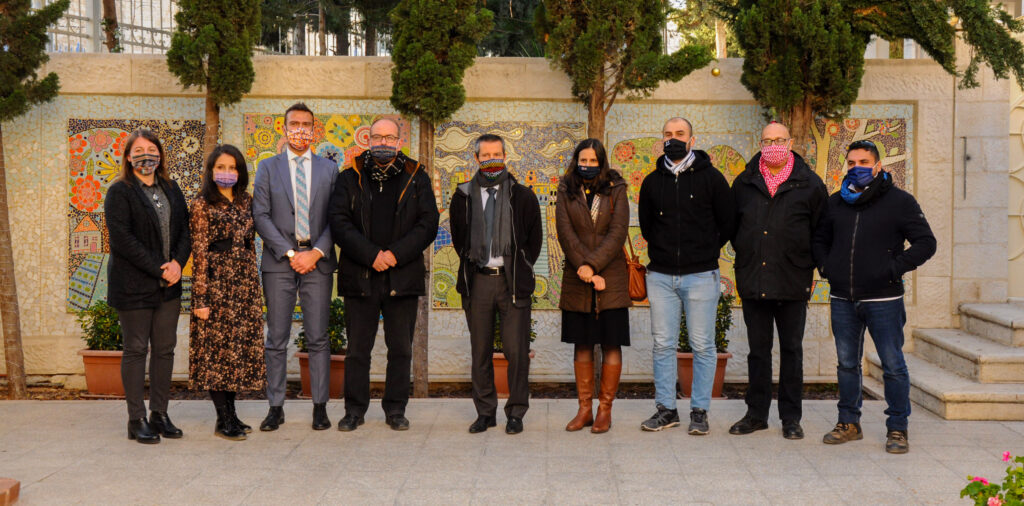
The French Embassy in Amman continues to support the project: the 20 girls, joined by tailor Mohsen, have expanded the collection to include household products, accessories, and garments such as shirts, classic pants, and coats. Moreover, the collection is being expanded in view of the Christmas markets: pillows, tablecloths, aprons, blankets and even Christmas anti-covid masks are being made!
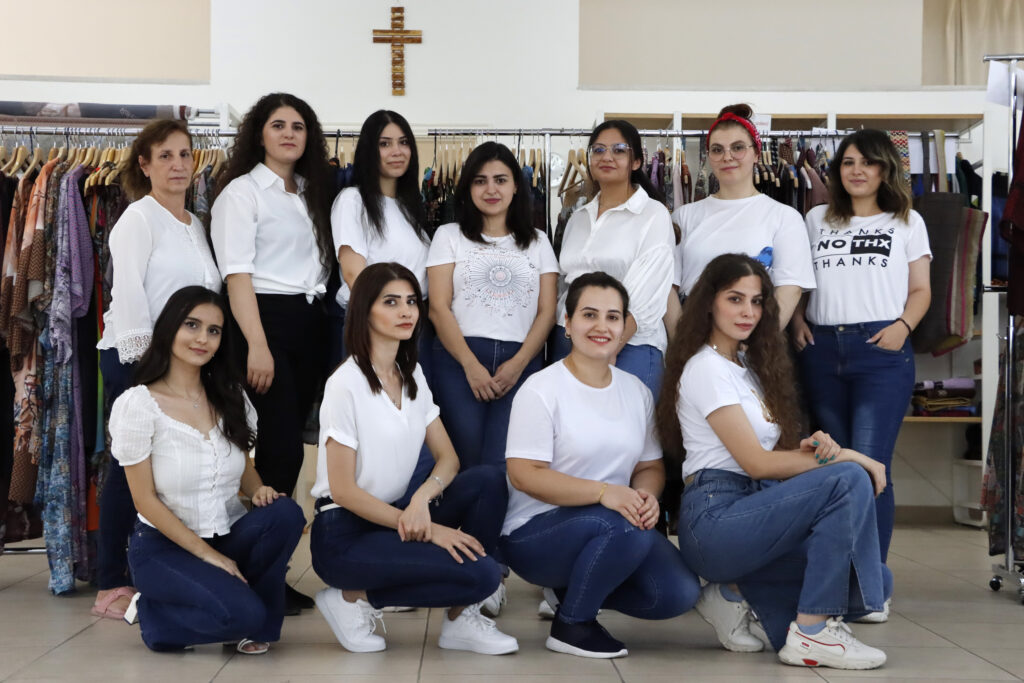
Thanks to the third year of funding from the French Embassy, new trainings are implemented to make the project self-sustainable.
The girls take classes to perfect tailoring techniques, develop their soft skills, and acquire marketing and communication skills the courses are conducted in a participatory way, making the 10 girls involved in decision-making processes and giving them more responsibility: some of them now independently manage Rafedìn's Facebook and Instagram social pages.
Rafedìn's activities are increasingly appreciated by the international and local community in Amman: products are housed in a number of virtual bazaars, in addition to always being available in the Atelier.
Momo, the tailor who created and gave so much to the girls suddenly passes away, leaving a great void. Fortunately, the project can count on Rosaria's willingness to move to Amman to once again follow the Atelier's activities and develop new collections.
The idea is to be able to make girls entrepreneurs of their future, aiming at developing their managerial skills and ensuring the sustainability of Rafedìn.